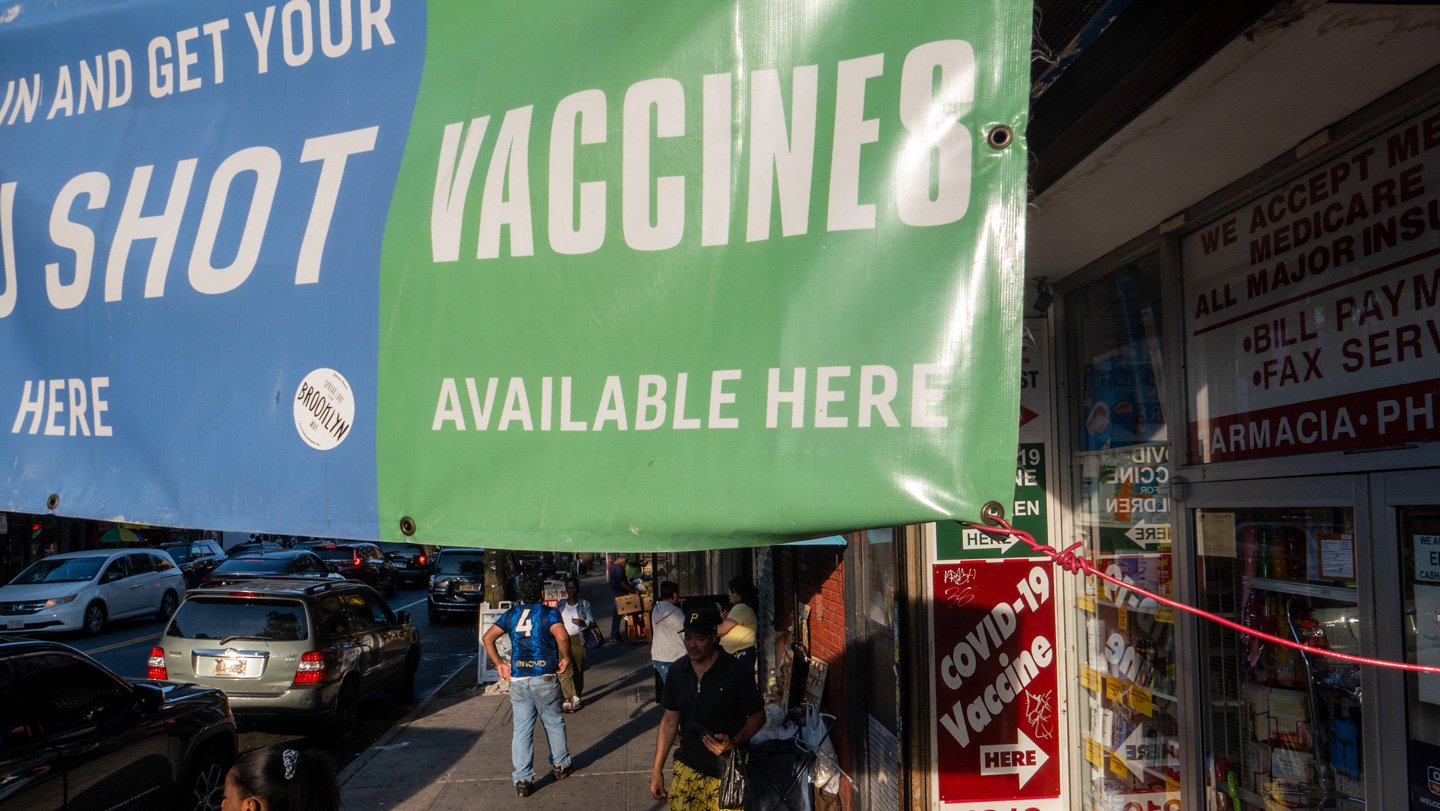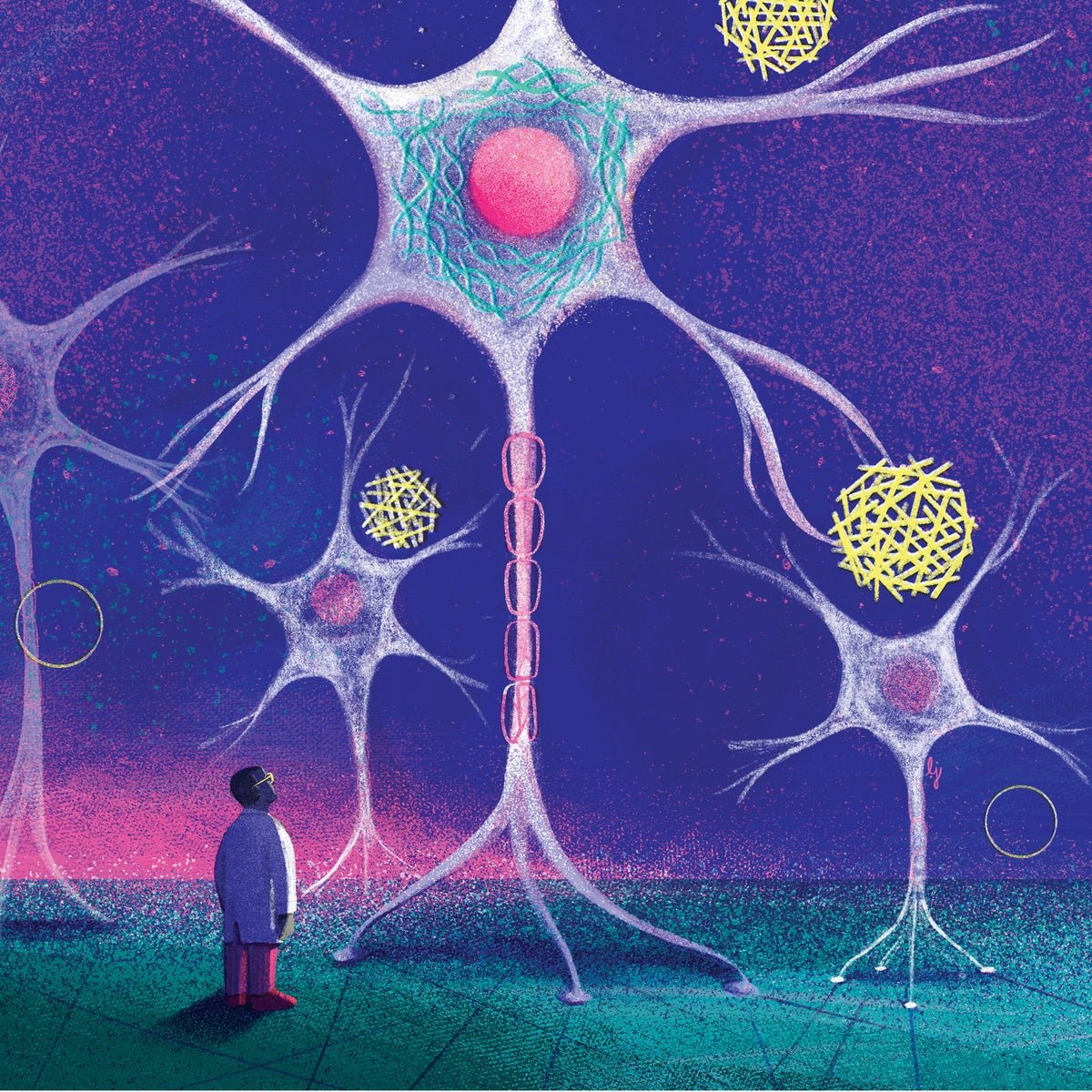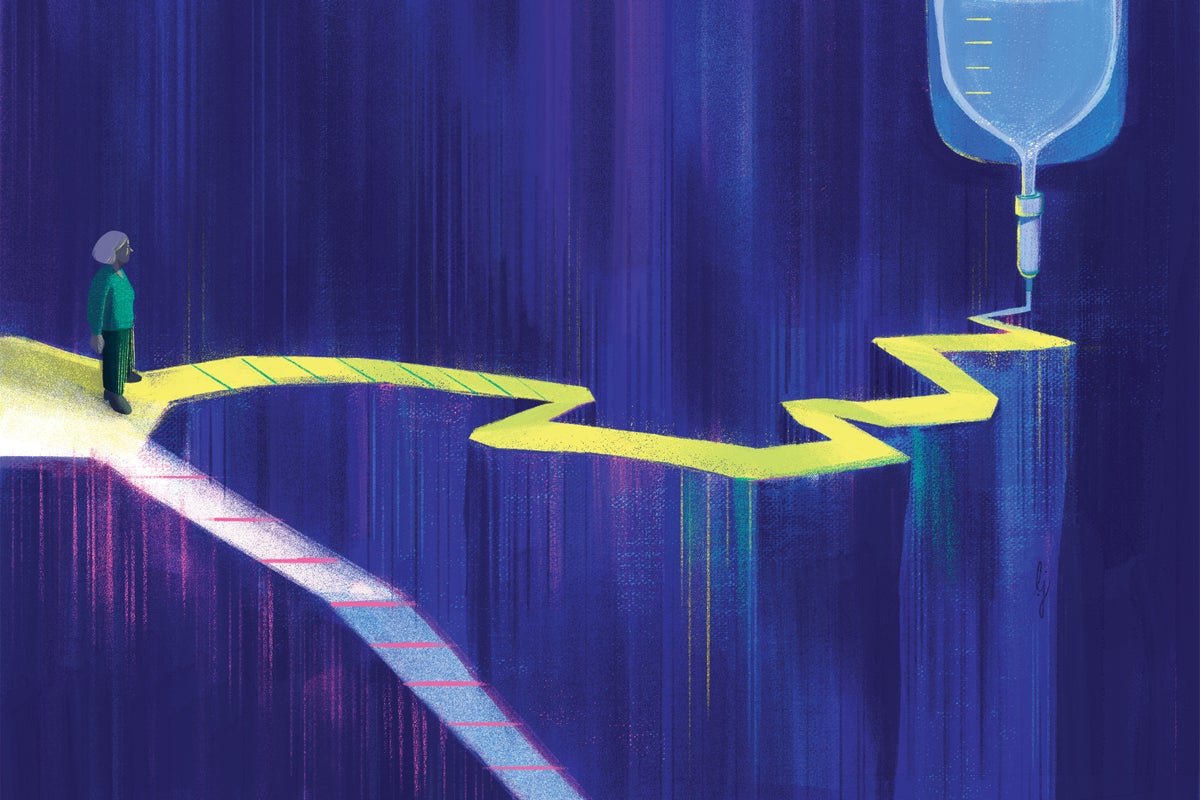
Traveling across state lines in search of an available shot. Scrambling to get a doctor’s prescription. Showing up for a pharmacy vaccination appointment only to be denied. Those are some of the stories people have been describing to journalists and on social media as they share whether or not they could get the latest COVID-19 vaccine, updated to better match coronavirus strains in circulation.
This reality contradicts Health and Human Services Secretary Robert Kennedy Jr.’s testimony in a Sept. 4 congressional hearing that everybody can get the vaccine. In May, the U.S. Food and Drug Administration placed restrictions on who is eligible for the COVID-19 shot. Previously, the Moderna and Pfizer formulations were available for anyone 6 months and older, with Novavax OK’d for those 12 and up. Now, the FDA has stated, those 6 months to 64 years old can receive the vaccine only if they have a medical condition that increases the risk of severe COVID-19 disease.
“There’s going to be a significant amount of chaos — unnecessary chaos — because of these changes,” says Eric Meyerowitz, an infectious disease physician at Montefiore Medical Center in New York City. The new federal restrictions have led to widely varying access in the United States, sometimes dependent on state or pharmacy policies.
More restrictions are possible. The U.S. Centers for Disease Control and Prevention’s Advisory Committee on Immunization Practices, or ACIP, is scheduled to meet on September 18 and 19 and COVID-19 vaccines are on the agenda. The members of that committee — which historically has provided the evidence-based recommendations for vaccine use — were fired earlier this year by Kennedy. His replacements included people known for their anti-vaccine stances. On September 15, Kennedy announced five more members, who have backgrounds in surgery, cardiology and tuberculosis, not vaccines.
Up to now, in public health, “the whole idea has been to encourage access” to vaccines, says Gigi Gronvall, an immunologist and health security expert at the Johns Hopkins Bloomberg School of Public Health. “It’s all about how can we make this even easier,” she says, not harder.
Given that there are new roadblocks to getting a COVID-19 vaccine, Science News talked with three experts about what might happen with this year’s expected surge in illness and future waves of infections of SARS-CoV-2, the virus that causes COVID-19.
What’s expected to happen with COVID-19 cases this fall and winter?
As of September 6, U.S. wastewater surveillance data, which tends to trend with rising and falling cases, shows COVID-19 activity is moderate to very high in more than half the country. The COVID-19 Scenario Modeling Hub, a consortium of researchers from numerous institutions, released in June its predictions on COVID-19 activity for the rest of this year and early next year. It projects a peak in late August and another in January.
COVID-19 waves continue to occur due to a combination of waning immunity after infections and vaccination as well as the coronavirus being “very adept at evading the immune response,” Meyerowitz says. The primary subvariant circulating as of August, called XFG, is another descendant of omicron, the SARS-CoV-2 variant that caused a massive spike in cases in the winter of 2021–22.
Updated COVID-19 vaccines can help the immune system counter the coronavirus in its latest forms. The 2025–26 version is formulated against another omicron descendent called LP.8.1, which circulated widely in the spring. In its application for FDA approval, Pfizer included data that showed that its updated vaccine elevated the immune response to several strains, including XFG.
“We’re in a situation where people should think about getting an updated vaccination to help give their immunity a boost … to top it up and give people as much protection as possible,” says Aubree Gordon, an infectious diseases epidemiologist at the University of Michigan in Ann Arbor. The protection from vaccination, while it might not completely stop an infection, can temper the symptoms and is key to prevent severe COVID-19 illness.
The COVID-19 Scenario Modeling Hub predicts that shots for all age groups would reduce hospitalizations by 116,000, or 17 percent, and deaths by 9,000, or 19 percent, compared with not getting vaccinated, for the period covering April 2025 to April 2026.
What are the concerns with restricting access to COVID-19 vaccines?
Generally speaking, if it’s harder for people to get vaccinated, there is the opportunity for more symptomatic cases and more severe cases. There are a lot of factors that influence people’s vulnerability to COVID-19’s harms, including the fact that preexisting immunity from infections and vaccination eventually wanes. And things can shift. For example, “your ability to withstand the effects of getting infected are going to change over time as you get older or if you’re having other health problems,” Gronvall says.
Even for people who are generally healthy, if they don’t get vaccinated and then get infected, it’s more likely that “people are going to feel worse,” Gordon says. Rather than a two- to three-day illness, perhaps a cough persists for weeks. If people get sicker, that can mean more days of missed school or work. It’s more disruptive for life, she says.
There’s also a risk of more hospitalizations, which could strain hospital systems. Research has found that COVID-19 vaccination reduces hospitalizations due to the disease. One study that covered early 2022, when omicron dominated, reported that COVID-19 hospitalization rates were just over 10 times as high in unvaccinated people compared with people who had been vaccinated and boosted
If the ability to get COVID-19 vaccines deteriorates further over time, “what we’ll see is surges in hospitalizations and surges in deaths,” Meyerowitz says, and “largely in the groups where we know that the risk is highest.” That’s older adults, especially those over 75, and children and infants under the age of 2. “If you continue to drive down vaccination rates,” he says, “those [hospitalization] rates are going to go up.”
Why does vaccination remain important?
“There is no pathogen on the planet” for which a natural infection is better than having the vaccine first, Gronvall says. Vaccines are “like a dress rehearsal for the main performance.” They give the immune system some training in a safe way before the main infection event, she says, “so your immune system has a leg up.”
There has already been a large measles outbreak in the United States this year due to under-vaccination against the disease in some areas. “There’s a real fear that we could have large outbreaks of these incredibly dangerous infectious diseases that are really quite easy to prevent,” Gordon says. “That’s what public health is there for, so we don’t have babies born with rubella, so that our kids can go to school without some of them getting measles.”
The recent restrictions at the federal level on eligibility for COVID-19 vaccination means “there is a divergence now of standard of care medicine from federal policy,” Meyerowitz says. “That doesn’t mean the standard of care has changed.”
Medical associations like the American Academy of Pediatrics and the American College of Obstetrics and Gynecologists have put out evidence-based recommendations for vaccination. “I would look to the medical societies who are putting out their own guidelines,” Meyerowitz says. “Our duty is not to advance some dubious federal policy but rather to do right by our patients and to make sure that we are sharing actual evidence-based recommendations.”
Source link




